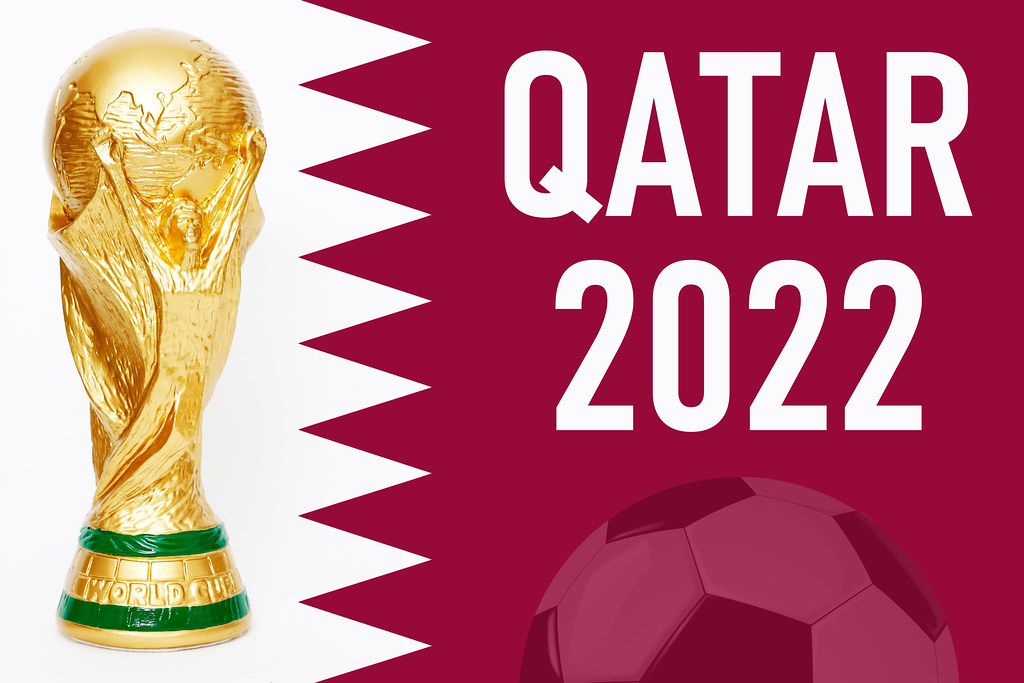On November 20, the 2022 FIFA World Cup is scheduled to begin in Qatar, exciting soccer enthusiasts worldwide. But even if you’re not a die-hard soccer supporter, you’ve heard something about the numerous scandals surrounding this year’s edition of the most prestigious sporting event in the world.
The 2022 World Cup has been mired in a complex web of scandals ever since FIFA, the organization that oversees international soccer, granted Qatar the tournament in 2010. The charges on this site range from claims of bribery and corruption during the selection process to host the competition to claims that Qatar is using the event to “sportswash” its history of human rights violations. Since the country was given the tournament in 2010, at least 6,500 migrant workers have perished in Qatar, according to a Guardian investigation. FIFA’s controversial decision to move the competition to the northern hemisphere’s winter to avoid Qatar’s sweltering summer heat has increased tensions around the competition globally. Critics have seized on this decision as evidence that FIFA is going above and beyond to accommodate an already problematic host.
Moreover, this World Cup is not the first to be involved in geopolitical disputes.
When the 2014 World Cup was held in Brazil, the forced eviction of thousands of poor and working-class Brazilians to make room for new tournament-related infrastructure sparked an international outcry. Similarly, the 2018 tournament in Russia raised concerns about FIFA’s cozy relationship with authoritarian leaders like Russian President Vladimir Putin. Soccer fans had to temper their passion for the game with an understanding of the ugly political concessions that invariably follow the multibillion-dollar spectacle since at least 1934 when the second World Cup was held in Benito Mussolini’s fascist Italy.
It is impossible to dispute the World Cup’s enduring appeal worldwide, given that around 3.5 billion people watched it in 2018. These controversies are challenging to resolve because of the very things that make sports so alluring—the high stakes of 32 countries competing in a month-long tournament, the strength of long-standing rivalries, and the possibility that one goal could decide the fate of an entire nation.
According to investigative journalist and Red Card: How the U.S. Blew the Whistle on the World’s Biggest Sports Scandal author Ken Bensinger, “I know lots of individuals who say nasty things about FIFA but are nevertheless quite enthused about the approaching World Cup.” Even though it shouldn’t be held in Qatar, I am enthused about the 2017 World Cup.
The advantages of hosting the World Cup are still quite tangible, particularly for developing nations like Qatar. DanyelReiche, a visiting associate professor at Georgetown University Qatar, where he directs a research project on the political and economic aftermath of the World Cup, stated that “Qatar is a little state, and for small governments, the major purpose in international relations is exposure.” In addition to being visible, it’s essential to have some effect on world affairs and have the strength to outperform your peers.
But the tournament’s enhanced worldwide attention also poses severe political risks to the hosts. While Qatar intends to use the 2022 World Cup to promote a positive image of the country abroad, the tournament, in contrast, has come to introduce and educate many global audiences about the state in largely negative terms, as Reiche and his co-author Paul Michael Brannagan argue in their new book on the competition.
According to Reiche, the benefits still exceed the drawbacks in Qatar’s instance. FIFA and the nations that will host the tournament in the future, however, will have to respond to challenging concerns about the game’s value as awareness of the economic, ecological, and human costs continue to grow. These doubts won’t go away soon, especially as Saudi Arabia is allegedly considering a bid to host the tournament in 2030.
FIFA World Cup in Qatar Controversy
First controversy: Charges of bribery and corruption tarnished Qatar’s application.Second Controversy: Low-paid migrant workers were used to erect the tournament’s infrastructure.Third controversy: Qatar is under fire for allegedly “sportswashing” its history of human rights violations by utilizing the competition.Fourth controversy: FIFA is inflating the figures for its sustainability commitment.Is it likely that the World Cup will change as a result of all these issues?The short answer is most likely not.FIFA has implemented several reforms since 2015, intending to eradicate corruption and enhance openness and accountability inside the organization. However, there is still time to tell whether these changes will have the desired impact. In my opinion, many of the improvements “seem like good ideas, but in practice, they don’t reflect a meaningful change,” according to Bensinger. Gianni Infantino, the current president, who abruptly relocated to Qatar in October 2021, has a presidency that “simply doesn’t look like a transparent organization,” according to one observer.The tournament-related controversies have sparked a renewed interest among players and spectators in voicing their opinions. A collection of European soccer associations, including those from England, Germany, and France, announced plans to have some team players wear rainbow armbands during contests to protest Qatar’s treatment of its LGBTQ population in September. The Danish national team, however, recently debuted a “toned-down” design for its uniforms to show its disapproval of Qatar’s abuse of migrant workers. According to announcements made in recent weeks, the establishment of “fan zones” to allow spectators to watch the games in public, as they had in previous years, has been discontinued in several of France’s largest cities.But ultimately, the World Cup’s extraordinary popularity will continue to be the most significant barrier to reforming FIFA.Bensinger stated, “FIFA knows that every four years, everything is forgotten, no matter how it behaves and how dissatisfied people are with the organization.” It’s like the Catholic Church: As long as you go to confession on Sunday, you can do whatever you want during the week. For FIFA, the World Cup serves this purpose.

